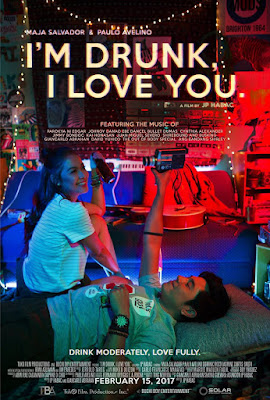THE IRON LADY (Phyllida Lloyd, 2012)
Biopics are risky. People are always looking for authenticity, veracity, or fearlessness in storytelling- especially if the subject is a controversial figure. There's a good way of doing it (GANDHI, THE SOCIAL NETWORK) and then there's a bad way of doing it (AMELIA, CLEOPATRA). In the end, it's what you have to say for your subject that makes all the difference.
Take THE IRON LADY for example. The subject is former British Prime Minister Margaret Thatcher-controversial indeed. The actress playing the character is Meryl Streep- more than capable. But what does the film want to say about Thatcher?
The focus of screenwriter Abi Morgan's script is on how Thatcher remembers her rise to glory and eventual downfall, and director Phyllida Lloyd, who reteams with Streep since MAMMA MIA mounts the scenes and pieces them together like a memory: non-linear, jagged, and selective, which is not to say that there isn't any amount of truth in the telling.
We see Thatcher as she battles dementia in her post-PM years, struggling with apparitions of her dead husband, and mulling over decisions she made during her post as England's leader. We also see her as a young woman, trying to make it in a man's world despite the chauvinism and discrimination that heavily existed at the time. Then there's some crucial moments of Thatcher's administration- namely the riots, the budget cuts, and most importantly the Falkland incident. In a montage that is done almost in cartoonish fashion, we take note of Thatcher's relationship with some influential people, such as Ronald Reagan and Nelson Mandela.
Clearly, the filmmakers' emphasis is on showing Thatcher as a strong-willed woman (hence the title) by singling out moments of her life with which she struggled with her detractors, with difficult choices, and most importantly with men. In fact, the film is intent on proving that a woman can get the job done. Point taken.
But what about Thatcher as a leader? As a politician? Yes we partly saw her administration style when she did not flinch on the whole subject of the Falkland Islands and when she publicly humiliated her deputy in front of the whole cabinet, but what else? I am saddened about Abi Morgan and Phyllida Lloyd being British and not having enough statement for Thatcher. I am not quick to attribute the feminist approach of the film to Morgan and Lloyd being women, but their approach on Margaret Thatcher in THE IRON LADY got me curious as to how it would play out if done by a man? Say Stephen Frears, perhaps? I hope I could see that realized in the future for a comparison, but it's quite hard to follow in the footsteps of Meryl Streep who made Margaret Thatcher such an interesting character. In fact, Streep makes this whole movie work that in the hands of a lesser actress we would have absolutely no reason to go see this.
On a sidenote, Jim Broadbent who plays Margaret Thatcher's husband Denis, is equally thrilling to watch. He lends a gentle and humorous approach to his character that even in the sidelines, he shines.
RATING: 3/5

Comments
Post a Comment